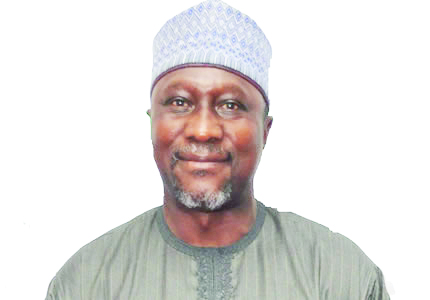Fighting violent extremism through combat seems not to have yielded expected results, as the military is winning the battle but losing the war. CHUKWUDI NWEJE examines the West African Network for Peace-building (WANEP)’s non-combat recommendations to stem the tide.
Violent extremism and terrorism are on the increase in Nigeria. The Boko Haram terror group in the North East, the sectarian and ethnic clashes on the Plateau that pit Christian and Muslim communities
against each other and the nomadic Fulani herdsmen who have attacked farmers in different parts of the Middle Belt and Southern Nigeria have put the entire country in a state of fear.
Since 2009, the Nigerian military has been on a full-scale war against the Boko Haram insurgents. The terror group has reportedly been decimated and communities previously occupied by the terrorists recaptured by the army.
However, there are growing fears that though the army is winning the war against terrorism, it is losing the battle, as violence and radicalism continue to permeate the society.
Worried by this development, the West African Network for Peace-building (WANEP) recently held a two-day consultative meeting of stakeholders on developing and incorporating community resilience and countering violent extremism (CVE) strategies, into peace education curriculum in the shale region.
The stakeholders’ meeting held at the Paris Choice Hotel and Resort,Maitama, Abuja, aimed at finding lasting solutions violent extremism in the country and Africa’s Sahel region. The Sahel region, which extends from the Atlantic Ocean to the Red Sea, is the eco-climatic and bio-geographic zone of transition between the Sahara to the north and the Sudan Savanna.
The Sahel covers parts of northern Senegal, southern Mauritania, central Mali, northern Burkina Faso, the extreme south of Algeria, Niger, the extreme north of Nigeria, central Chad, central andsouthern Sudan, the extreme north of South Sudan, Eritrea, Cameroon, Central African Republic (CAR) and extreme north of Ethiopia. The area has been plagued by violence and acts of terrorism in recent years.
Violent extremism and Nigeria
The United States of America (U.S.A.) intelligence agency, the Federal Bureau of Investigations (FBI), defined violent extremism as “encouraging, condoning, justifying, or supporting the commission of a
violent act to achieve political, ideological, religious, social, or economic goals”.
It said that many violent extremist ideologies are based on the hatred of another race, religion, ethnicity, gender or country/government.
“Violent extremists often think that their beliefs or ways of life are under attack and that extreme violence is the only solution to their frustrations and problems.
“Despite what they sometimes say, violent extremists often do not believe in fundamental American values like democracy, human rights, tolerance, and inclusion. Violent extremists sometimes twist religious teachings and other beliefs to support their own goals,” the FBI further said.
Some acts that fit the FBI definition of violent extremism have been committed in Nigeria and the Sahel region. In Nigeria, Boko Haram, an Islamic organisation founded in 2002, has been on a violent spree since 2009 when its founder, Mohammed Yusuf, died in police custody.
The group abducted over 200 schoolgirls from Government Secondary School, Chibok, Borno State, in April 2014. The girls had remained in captivity since then, although some of them were reported to have escaped from their captors, some have died, while 21were recently released, after negotiations with the terrorists.
In March 2015, the group pledged allegiance to the Islamic State (IS), a Salafi jihadist militant group that follows a fundamentalist Wahhabi doctrine of Sunni Islam.
Sectarian violence has been a re-occurring issue in Plateau State, North Central Nigeria. Series of sectarian violence between Christian and Muslim communities have been recurring since 2010.
The Fulani herdsmen who migrated southwards following desert encroachment in the North and scarcity of grazing fields for their cattle have invaded farmlands in North Central and southern Nigeria
and attacked villages that opposed them.
The Boko Haram terrorists and the herdsmen are some of the deadliest terror groups in the world.
Data from the United Nations High Commission on Refugees (UNHCR) revealed that over 650,000 people have been displaced by Boko Haram terrorists and now live in Internally Displaced Persons (IDPs) camps spread across the country.
The Global Terrorism Index (GTI), a U.S.-based 21st Century Wilberforce Initiative, ranks Boko Haram the world’s most lethal terrorist group, followed by ISIS, while Al-Qaeda ranks third and the Fulani herdsmen fourth.
Analysts believe that rapidly diffused messages on ethno-religious identities, feelings of exclusion and marginalisation and fast shrinking access to economic opportunities play a major role in the spread of violent activities, which have triggered or exacerbated violent reactions, which in turn have contributed to the worsening security situation in the country.
Incidentally, state actors have also been accused of violent extremism against the citizenry.For instance, the Indigenous People of Biafra (IPOB) and the Niger Delta militants have accused the Nigerian military of employing violent extremism against them because of their agitations for self-recognition.
Non-combat de-radicalisation
WANEP argued that non-combat approaches should be explored to counter violent extremism in Nigeria. The war against Boko Haram has raged for about seven years and yet the end is not in sight.WANEP advocated developing and inculcating community resilience and countering violent extremism strategies into peace education curriculum in the violent extremism-prone areas.
Executive Director of WANEP, Ms Bridget Osakwe, noted in her welcome address that a culture of non-violence and community resilience is imperative to sustainable peace.
The Minister of Education, AdamuAdamu, in his keynote address, regretted that children and youths are used to perpetrate violent acts, noting that such acts erode family values. He commended WANEP for its initiative, which he said is in line with the agenda of the Federal Government.
“A culture of non-violence is imperative and sustainable peace in the sub-region depends on individuals possessing the knowledge, skills and character to use non-violent conflict-resolution skills. Peace education imparts in the youth not only a new way of thinking and seeing conflict, but also a new behaviour that could give them the ability to work together towards changing the structural, cultural, religious as well as ethnic practice in the society that deepens violence.”
Radicalism turned terrorism
In his paper entitled ‘Education and Counter-radicalisation: Exploring the Curriculum Approach to countering Violent Extremism in Nigeria’, Executive Secretary, Nigerian Education Research and Development Council, Abuja,Professor Ismail Junaidu, lamented how radicalism
has been abused for selfish ends.
“Radicalism is now an intriguing social phenomenon, the semantics, concepts and social or political theory of which have been extended to assume very complex dimension globally.Radicalisation has gradually drifted away from the assertion of ideological standpoints aimed at
bringing about social change or reforms…
“The radicalisation dynamics and elasticity have now been acutely stretched to the realms of extremism and different shades of violence and terrorism that are antithetical to social engineering, human existence and development. The negative and violent dimensions of extreme radicalisation have become global. They consist of trans-continental and trans-border commonalities and linkages, as well as national or endemic peculiarities,” Junaidu noted.
Indeed, when the Boko Haram movement started in 2002, it went about building Islamic schools in Maiduguri, Borno State. However, the group has since deviated from that path and has turned full circle to become a terrorist organisation that goes about burning down schools and villages and killing innocent people.
Education as tool for de-radicalisation
Junaidu identified education as the most critical factor for de-radicalisation and called for inclusion of packages for countering violent extremism into the education curriculum. He said: “One of the most effective ways of preventing and countering violent extremism or extreme radicalisation is using the curriculum approach. Schooling, educational contents and delivery are very significant factors of attaining learning outcomes and creating behaviour and social change in the overall.
“The school is as well a potential centre for recruitment, indoctrination and vulnerability. It can also be a target of violence with all the serious consequences of destruction, loss of life, disruption and dispersal.”
Therefore, these underscore the need for awareness, knowledge and acquisition of competences and skills to prevent violent extremism.
Government for non-combat de-radicalisation
In August 2016, the Federal Government reaffirmed its commitment to ensure that the country overwhelmed terrorism and re-integrates radicalised persons or extremists back into the society,for them to live normal lives.
Secretary to Government of the Federation (SGF),Babachir David Lawal, who inaugurated a working group to develop a policy framework and national action plan on prevention and counteringviolent extremism in Nigeria on August 1, in Abuja, said: “What government is doing with respect to these people is to rehabilitate them and give them the opportunity to fit back into the society and contribute their own quota to the stability and growth of the nation. The second group is those we are arresting. These persons are being de-radicalised to enable them join the society as responsible citizens.”
National Security Adviser (NSA), Major Gen.BabaganaMonguno(rtd.) who was represented by the Permanent Secretary, Special Services Officer,AminuNabegu, also assured that the action plan drafting process would be citizen-based and made to suit the mandates of various government ministries, departments and agencies (MDAs), and other key stakeholders.
“We believe that this consultative process provides the opportunity for a citizen-based, participatory approach to tackling an imminent threat from violent extremism. This approach will also ensure transparency and accountability of actions targeted towards enhancing peace, security and development,” he said.













